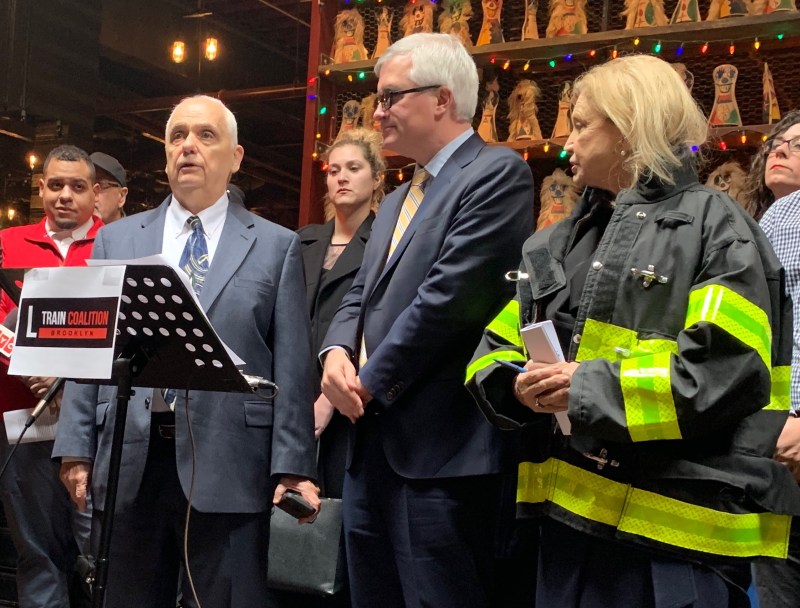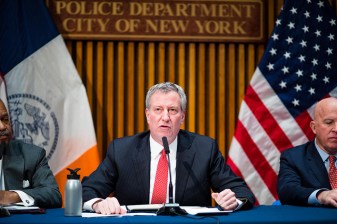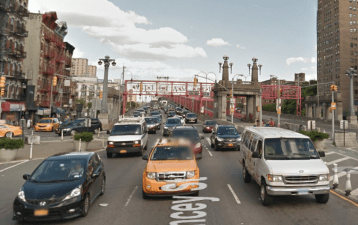Pol: State Legislature Can Mandate Now-Scrubbed L-Pocalypse Improvements
Transit officials have so far rebuffed pleas from North Brooklyn businesses and elected officials for better transit mitigations during L-train tunnel rehabilitation.

A senior state lawmaker is threatening unilateral action to make the Williamsburg Bridge HOV-only if the MTA and DOT decline to do so during L-train tunnel work expected to begin in April and last at least 15 months.
Greenpoint Assembly Member Joe Lentol is among a cadre of North Brooklyn pols calling on the two agencies to reinstitute the ferries, bus lanes, and HOV restrictions that were planned to carry riders across the East River during the now-canceled L shutdown.
“We have an alternative. We not only have the old plan, but we have a bill. We can tweak that bill, introduce it, and pass it in both the senate and assembly if we have to — if the MTA doesn’t hear our voices,” Lentol said at a Friday press conference organized by North Brooklyn business groups.
Transit officials, however, insist that those mitigations are now unnecessary — despite the MTA’s own analysis predicting major subway crowding due to 20-minute nighttime and weekend headways.
“They’re not really listening to us,” Lentol told reporters. “They’re dictating what they think is best for this community.”
The bill, introduced last spring at the behest of the MTA and the city, would have authorized camera-enforced HOV restrictions on the Williamsburg Bridge, where the MTA had planned to run as much as 80 shuttle buses during peak hours. That bill was contingent on the original L-train shutdown and timeline — hence the “tweaks” Lentol referenced.
Elected officials and business owners alike cheered in January when Governor Cuomo announced his unilateral decision to cancel the L-train shutdown. But the governor’s new plan includes heavy reductions in nighttime and weekend service, which MTA officials anticipate will cause significant overcrowding inside and around subways stations.
North Brooklyn businesses are reeling since learning of those service. The area’s many bars, restaurants, and shops rely heavily on off-peak customers. Already, businesses claim to have experienced a 20-percent sales drop due to weekend service cuts.
Their employees, meanwhile, are fretting over how they’ll be able to get to and from work with transit so greatly diminished.
“It’s not like this is a community that closes down at five-o’clock. It’s not a nine-to-five, sleepy community. It’s one that’s very active at night and on the weekends,” said U.S. Representative Carolyn Maloney, also on-hand for the press conference. “What they’re offering us is just not sufficient.”
Outside of the legislature passing a bill, which Lentol said he expects Governor Cuomo would veto, city DOT could still opt to retain street redesigns intended to keep L-train replacement shuttles moving. But those redesigns won’t do much good if the MTA doesn’t run buses on them.
The city has so far declined to say whether it will retain the bus lanes and bike lanes it began installing ahead of the shutdown.



